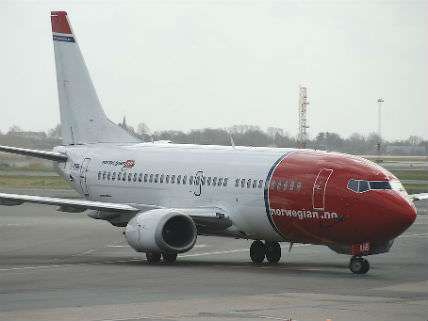Norwegian Air Locked Out of U.S. Market for Daring to Offer Less Expensive Flights

Norwegian Air has been waiting, and waiting, and waiting for approval to expand the number of low-cost trans-Atlantic flights it can offer to American travelers—and it seems the airline's top brass is losing patience with the repeated delays. According to a release from the company:
Today, Norwegian's CEO Bjørn Kjos will call on the U.S. Department of Transportation (DOT) to once and for all approve the application for a foreign air carrier permit for the company's Irish subsidiary Norwegian Air International (NAI)…
"We are doing exactly what the Obama administration wants: create American jobs, bring tourists to the United States and offer Americans cheap flights. The transatlantic market has far too long been dominated by alliances that have been allowed to rule the market with high prices and limited choice," says Bjørn Kjos.
The dispute stems from Norwegian's decision to set up a subsidiary in Ireland to take advantage of an Open Skies agreement between the U.S. and the European Union. The deal loosens restrictions between member nations, a list that includes Ireland but not Norway. Thus, at least in theory, setting up shop in the British Isles means NAI can fly to the U.S. without having to jump through quite so many hoops.
But some groups in the U.S. think the move is an attempt to skirt the law and have lobbied Congress and the the executive branch to prevent the airline from flying here. In June, the House passed an amendment to make it far more difficult for Norwegian to receive the needed approval, and in September, the DOT rejected a request to allow the company to begin operating while its full application is reviewed.
The controversy pits E.U. regulators, which generally support allowing NAI to fly between the U.S. and their shores, against domestic special interests like the Air Line Pilots Association. Detractors argue Norwegian should be rebuffed on fairness grounds, since airlines based in Ireland don't have to abide by the same labor laws as airlines based in some other places.
The real issue is, as ever, money. Legacy carriers American, Delta, and United know they risk losing market share to the Ireland-based upstart. If NAI finds a way to spend less than its competitors on compliance, it can pass those savings on to passengers in the form of cheaper flights. The domestic airlines are doing whatever it takes to keep that from happening. Sadly for consumers, it's working.


Show Comments (53)